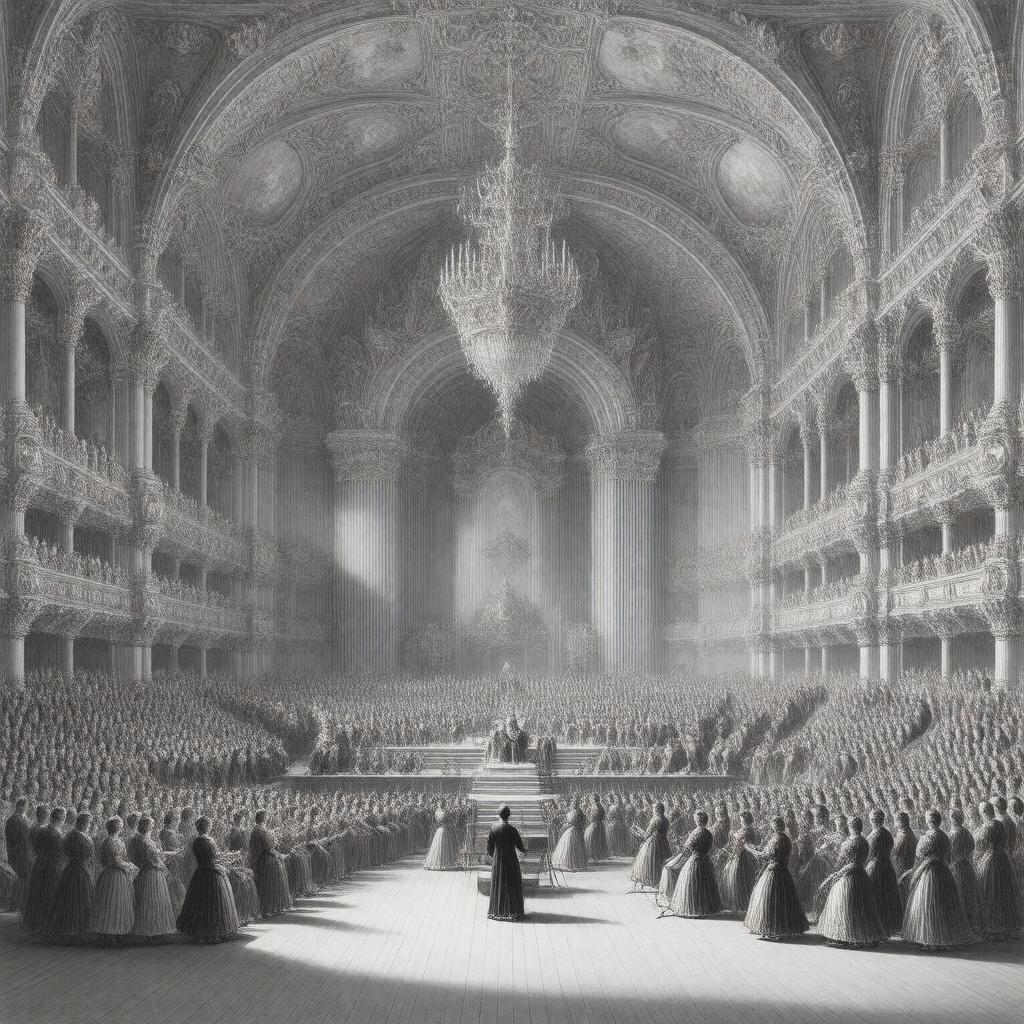Prompt
"Generate an image of the interior of Bayreuth Festspielhaus during the premiere of Parsifal on July 26, 1882, with a large orchestra and opera singers performing on stage, surrounded by the ornate architecture of the opera house, in a late Romantic style."

